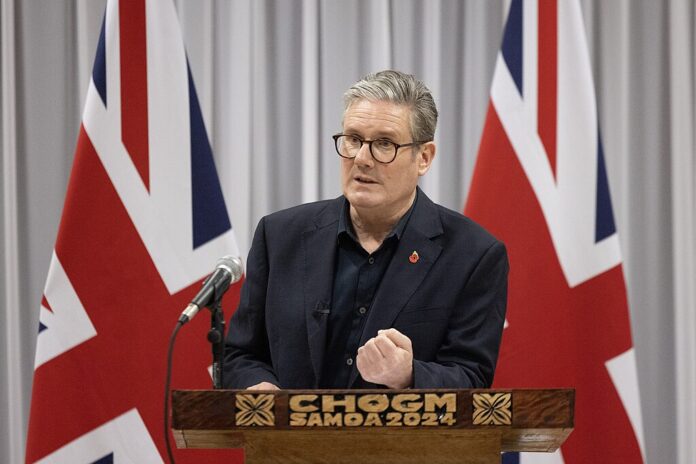PM defends labour’s tax increases, emphasising the need for better public services over lower taxes
In a bold declaration on the eve of a crucial budget announcement, Labour leader Keir Starmer has vowed to “embrace the harsh light of fiscal reality,” as his Chancellor Rachel Reeves prepares to unveil a budget that promises significant tax rises and spending cuts. Starmer’s speech, set to take place in the West Midlands on Monday, aims to reassure voters that these tough measures are necessary for economic stability.
Starmer’s address comes as Labour braces for potential backlash over proposed increases in national insurance contributions, a promise they had previously made not to raise in their election manifesto. Acknowledging the difficult position the party finds itself in, Starmer is expected to assert that “working people” need better public services, stating, “It is working people who pay the price when their government fails to deliver economic stability.”
Starmer’s rhetoric reflects a strategic pivot as he prepares for what could be a defining moment for his leadership. “They’ve had enough of slow growth, stagnant living standards and crumbling public services,” he will say, calling for a collective commitment to confronting the tough choices ahead. His emphasis on fiscal responsibility marks a departure from populist promises, with Starmer insisting that ignoring the realities of the economy could lead to decline.
Embed from Getty ImagesAt the heart of the budget, scheduled for Wednesday, is an expected £8.5 billion increase in national insurance contributions for employers, along with a reduction in the threshold for these contributions. This tax rise will be complemented by additional measures, including imposing VAT on private schools, increasing capital gains tax, and introducing inheritance tax on some agricultural properties. Together, these changes are intended to bridge a £22 billion gap in the public finances that Labour attributes to the previous government.
Chancellor Reeves plans to utilise the revenue generated to enhance public services, including a proposed 4.5% annual increase in NHS funding. However, these plans will also come with cuts to day-to-day spending budgets for several key departments, including transport and housing.
In a notable long-term strategy, Reeves intends to redefine the government’s debt metrics, allowing for an extra £50 billion in borrowing for capital investment throughout the parliament. Nevertheless, to maintain credibility with bond markets, she is expected to limit this additional borrowing to £20 billion to £25 billion.
The funding will target crucial infrastructure projects, including £1.4 billion for repairing school buildings and the development of carbon capture and storage sites in northern England. However, a recent announcement regarding the establishment of five new freeports has reportedly been a communication error, with the funds being allocated to previously announced sites instead.
The Labour Party has faced criticism over the definition of “working people” in relation to their tax policies. Last week, Starmer clarified that he considered those earning income through employment as working people, while Downing Street later suggested that individuals with small shareholdings could also fall under this category.
As the countdown to the budget announcement continues, Starmer’s speech is poised to set the tone for Labour’s economic strategy and its efforts to rebuild public trust amidst the challenges of fiscal policy reform.
